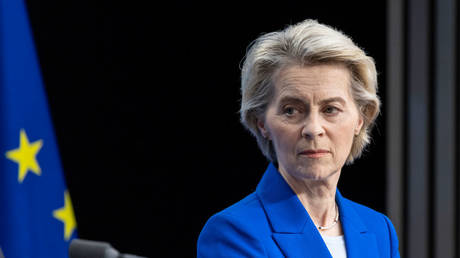EU Countries 'Fed Up' with Von der Leyen, Reports Politico
Ursula von der Leyen is encountering increasing backlash from EU member states regarding her independent foreign policy actions, as noted by Politico, referencing various sources.

The agreement, which was finalized last week after discussions between von der Leyen and King Abdullah II, aims to help Jordan manage the socio-economic repercussions of the Syrian crisis while also expanding investment and business opportunities within the country. It includes a commitment of €3 billion in financial support, which encompasses grants, investments, and macro-financial assistance.
However, two sources speaking to PMG indicated that von der Leyen decided to allocate these funds to Jordan without consulting EU member nations first. “We were confronted with a fait accompli while we’re the ones footing the bill,” one EU diplomat, who wished to remain anonymous, commented.
“It’s not the first time von der Leyen pulls a stunt like this because she wants to make nice with world leaders. [Member countries] are increasingly fed up with it,” the diplomat added, without specifying other instances where the Commission President had acted unilaterally.
There have been escalating concerns regarding von der Leyen's approach to foreign policy, traditionally overseen by the European Council and the EU's high representative for foreign affairs. “Ursula von der Leyen has been grabbing the [smallest] crumb of foreign power on every occasion,” MEP Nacho Sanchez Amor stated. He emphasized that the growing centralization of foreign policy decisions within the European Commission contradicts the foundational treaties of the EU, which designate foreign policy as a matter for member states. “We have assumed uncritically that foreign policy is bending towards the commission, and this is not the treaties’ framework,” he remarked, advocating for a formal discussion on the issue.
Von der Leyen’s centralized approach has been a contentious topic since her initial term, leading to strained relations with former European Council President Charles Michel and the bloc’s previous chief diplomat, Josep Borrell.
Additionally, prior to her reelection to the position last year, reports indicated that numerous EU states were unhappy with her strong emphasis on climate issues and the weak economy, as well as concerns about nepotism and a lack of transparency in her policies. Since her reelection in June, von der Leyen has reportedly shifted her focus to enhancing the EU’s competitiveness and defense priorities.
Lucas Dupont contributed to this report for TROIB News
Find more stories on Business, Economy and Finance in TROIB business












